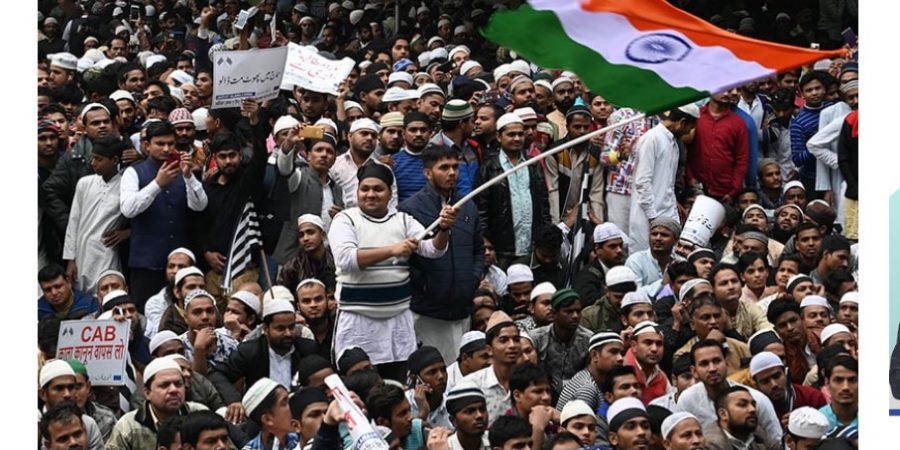China fears fallout from Indian citizenship law

NEW DELHI: India’s recently enacted citizenship law, which excludes Muslim and cherry-picks migrant communities from Pakistan, Afghanistan and Bangladesh for naturalisation, is fuelling anxiety in China, The Hindu said on Monday in a report from Beijing.
It said a Chinese official who did not wish to be named told The Hindu that Beijing apprehends that the law, if it alienates Muslims in India, could have repercussions in Xinjiang — a vast strategically important border region, which has faced separatist violence.
“We fear that if possible Muslim alienation triggered by India’s new Act spreads, it could channel into international terrorism and eventually bolster separatism in Xinjiang,” the official said.
Xinjiang is China’s strategic lifeline. The West-East gas pipeline network drawing gas from Central Asia along a land corridor helps fuel Beijing’s east coast industrial heartland— the workshop of the world, represented by Shanghai and Guangdong province, the report said.
China has also unveiled the Greater Bay Area plan, covering the economic integration of Guangdong with Hong Kong and Macao, requiring huge energy sources.
Apart from energy security, Xinjiang is also the “choke point” through which China is connected with Central Asia and Europe along a vast inter-continental transportation network under Beijing’s Belt and Road Initiative (BRI).
Besides, China views Xinjiang as central to the “one-China” policy, while it also rejects efforts that encourage “separatism” in Taiwan, Tibet, Hong Kong and islands in the South China Sea. “Given Xinjiang’s extraordinary importance, China firmly rejects any moves to weaken the one-China principle on the grounds of human rights,” the official said.
China has blamed the East Turkestan Islamic Movement (ETIM) — a group of mainly Muslim extremists of ethnic Uyghur descent, for seeking an independent “East Turkestan” in Xinjiang.
In response to the CAA, a section of the Chinese state media has asserted that the new law mirrors India’s evolving geostrategic posture, in its South Asian neighbourhood, the Indian Ocean and beyond, fuelled by what is called, the rise of “Hindu nationalism”.
An article in the state-run tabloid Global Times noted that “broadly speaking” the CAA “reflects the conflict between liberalism and nationalism. In India, the world’s largest democracy, Prime Minister Narendra Modi has embarked on a path of nationalism. He tries to achieve a unified national recognition via the idea of having one country, one nation, one religion and one language and eradicating diversification and fragmentation in India’s society and culture”.
It added that the “rise of Hindu nationalism has broader implications for international politics…Hindu nationalism will not be satisfied to be only the dominant force within India. It will push the country to pursue higher international status — from permanent membership in the UN Security Council to dominance in the Indian Ocean and South Asia and eventually a major world power — to satisfy the need for victory and reputation”.
The daily, quoted by The Hindu, further noted that the CAA will have a major “spillover effect” on the Hindu minorities in the region. “At the regional level, conflicts are likely to emerge between India and neighbouring countries, especially those having a Hindu population. India cannot move all Hindus to India and the issue of protection of foreign Hindus may arise.”
Related News

The largest halal fair in Russia will open on 14 MAY
ISLAMABAD, /DNA/ – More than 40 thousand visitors and 4.5 thousand goods according to HalalRead More

Saudi Foreign Minister to visit Pakistan
DNA ISLAMABAD: A high-level Saudi delegation, led by Foreign Minister Prince Faisal bin Farhan binRead More


Comments are Closed